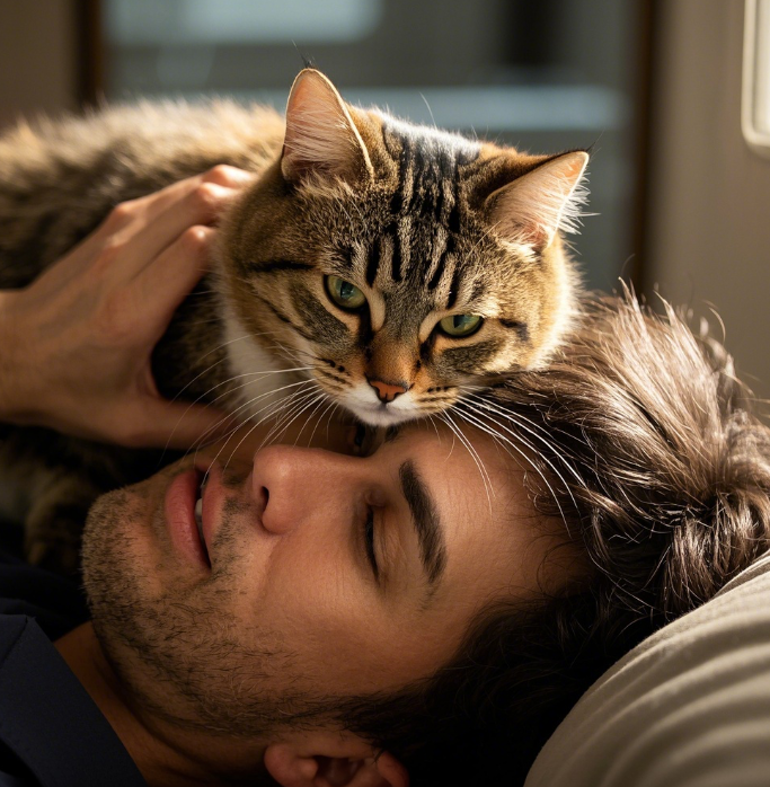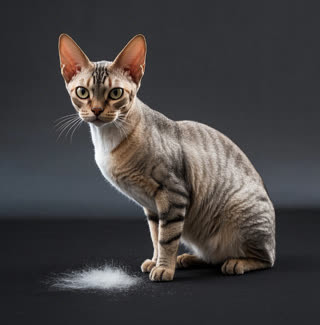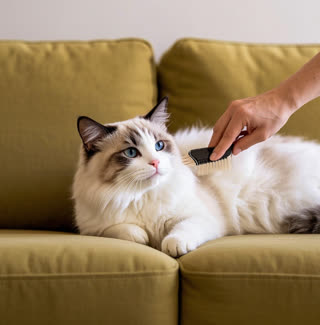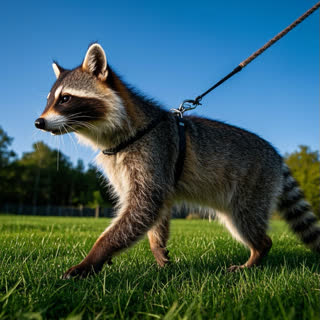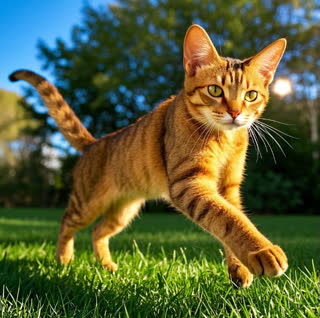If you’ve ever woken up to your cat’s rough tongue rasping against your cheek, you’ve likely wondered: "Why do cats lick your face?" This common feline behavior goes beyond simple curiosity. In fact, it’s a complex form of communication rooted in feline grooming behavior, social bonding, and even health instincts. Let’s explore the science and psychology behind this quirky display of affection.
1. Grooming Instincts: A Sign of Familial Bonding
Cats are fastidious groomers, spending up to 30% of their waking hours cleaning themselves. When your cat licks your face, they’re extending this behavior to you—a sign that they view you as part of their social group. In the wild, cats groom each other to strengthen social bonds and remove parasites. By licking your face, your cat is essentially saying, "You’re family, and I want to keep you clean."
This behavior often starts in kittenhood, as mother cats lick their kittens to stimulate elimination and teach grooming habits. If your cat was separated from their mother early, they may transfer this behavior to you as a substitute caregiver.
Pro Tip: Notice if your cat focuses on specific areas, like your nose or mouth. This could indicate they’re mimicking the grooming patterns they’d use on another cat’s face.
2. Saliva’s Secret Role: Health Benefits and Marking
Cat saliva isn’t just a grooming tool—it’s packed with enzymes that act as natural disinfectants. When your cat licks your face, they’re not only cleaning you but also applying a protective layer to your skin. Studies suggest that cat saliva may even have wound-healing properties, though this isn’t a substitute for medical care.
Additionally, cats have scent glands in their mouths. By licking your face, they’re depositing pheromones that mark you as "theirs." This is similar to how cats rub their cheeks against furniture to claim territory. So, that face lick is both a hygiene ritual and a way to reinforce your bond.
3. Communication: Expressing Emotions Through Licks
Cats use body language and touch to communicate, and face licking is no exception. Here’s what different licking patterns might mean:
Slow, gentle licks: Contentment and relaxation.
Rapid, intense licking: Overstimulation or stress.
Licking followed by biting: A playful or boundary-testing behavior (more on this later!).
If your cat licks your face when you’re upset, they might be responding to your emotions. Some cats even seem to "comfort" their humans with this gesture.
4. Hunger or Attention-Seeking Behavior
While less common, face licking can sometimes be a cat’s way of saying, "Feed me!" or "Play with me now!" If your cat licks your face during mealtime or when you’re ignoring them, they may be associating the behavior with getting what they want.
To discourage this, avoid reinforcing the behavior by giving in immediately. Instead, establish a routine for feeding and playtime to reduce attention-seeking licks.
Is Cat Licking Safe? Veterinarian Explains Risks & Rewards
While face licking is generally harmless, it’s not without risks. Watch this video from Dr. Sarah Miller, a certified feline behaviorist, to learn about potential health concerns and how to maintain a healthy balance:
Cat saliva can transmit bacteria like Pasteurella, which may cause infections in humans with weakened immune systems.
Avoid letting cats lick open wounds or near your eyes.
Positive reinforcement training can help redirect excessive licking.
Common Questions About Cat Face Licking
Using insights from AnswerThePublic and Google’s "People Also Ask" feature, let’s address some frequently asked questions:
Q: Why does my cat lick my face and then bite me?
This behavior, often called "love bites," is a mix of affection and overstimulation. Cats may bite gently after licking to signal they’ve had enough interaction. If the bites become aggressive, consult a veterinarian to rule out medical issues or stress.
Q: Do cats lick to show dominance?
No—unlike dogs, cats don’t use licking to assert dominance. Instead, face licking is typically a sign of trust and social bonding. Dominant behaviors in cats include tail flicking, staring, or spraying.
Q: How can I stop my cat from licking my face at night?
Create a bedtime routine that includes playtime and feeding an hour before bed to tire your cat out. If they persist, gently redirect them to a toy or scratching post. Avoid pushing them away harshly, as this can cause stress.
Final Thought: Embrace your cat’s face licks as the unique expression of love they are—just keep a tissue handy! 🐾
